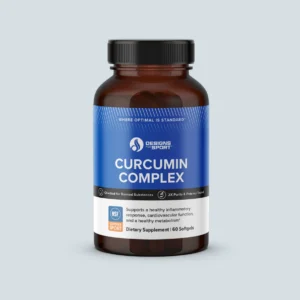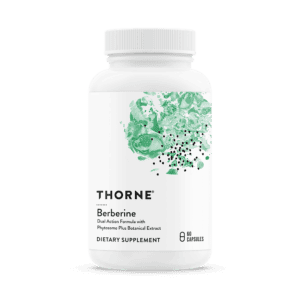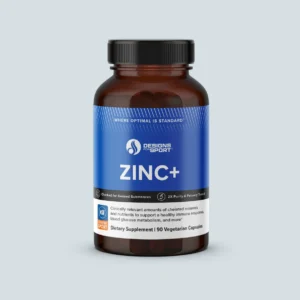B Vitamins – Why You Need Them
Home »
You have been told you should be taking a B vitamin, but you are unsure why you need it or what it is going to do for you.
Methylation… this is one of the main reasons we need adequate levels of B vitamins in our body. But what is methylation?
Methylation is an essential biochemical process that occurs in every cell in our bodies countless times throughout the day. It occurs more in the liver than any other organ in the body. The fact it occurs over a million times a day tells us that it is a pretty important process…in fact without proper functioning methylation achieving a optimal state of health is somewhat impacted.

Functions of Methylation
Methylation is involved in countless processes in our body including…
- Gene regulation and expression – turn genes on and off
- Detoxification
- Neurotransmitter production
- Neurotransmitter metabolism
- Hormone processing (especially estrogen)
- Building immune cells
- Regulating inflamation
- DNA & RNA synthesis
- Energy production
- Myelin production (protective coating on nerves)
- Building and maintaining cell membranes
When methylation is impaired it can affect almost any organ or system of the body.
Poorly functioning methylation contributes to a wide range of conditions including thyroid dysfunction, early aging, diabetes, cardiovascular disease, neurological inflammation, neurotransmitter imbalances, improper immune function, neutral tube defects, MS, Alzheimer’s…the list is extensive.
Factors Impacting Methylation
Methylation can be disrupted in the following ways:
- Lack of nutrients / malabsorption (folate, B12)
- Lack of cofactors (zinc, B2, magnesium, cysteine, B6)
- Certain medications (antacids, methotrexate, metformin, nitrous oxide)
- Nutrients that deplete methyl groups (niacin)
- Environmental toxicity (heavy metals and other chemicals)
- Excessive stress, anxiety, and sleep disturbances
- Decreased stomach acid
- Genetic mutations (like the MTHFR genes)
To have proper functioning methylation an individual requires the right amount of nutrients and co factors to drive the process as well as not be exposed to an excess of medications, toxins or stressors that can affect the process.
The number of toxins and stressors in our current environment increase the likelihood for a large number of individuals to struggle with methylation.
B Vitamins & Methylation
So where do these B vitamins fit in?
The two foundational nutrients needed for proper methylation are folate and vitamin B12.
Folate
The lack of folate and excess of folic acid in our modern diet is a big factor affecting the prevalence of methylation issues among individuals.
Folate vs folic acid
Folate:
- General term describing the numerous different forms of folate, a water-soluble vitamin coming from food.
- Mostly found in dark green leafy vegetables
Folic acid:
- Completely synthetic. Not produced in the body.
- Does not metabolize the smart way as natural folate derived from food
Folic acid is in many processed foods – cereals, breads, pastas – as well as many multivitamins and supplements.
Vitamin B12
- Without adequate B12 your body is unable to use folate properly.
- Found in muscle meats, organ meats, fish and shellfish
- Impaired digestive function or a lack of stomach acid may impact the body’s ability to absorb B12 properly
Optimising Methylation
There are a number of ways you can optimize your body’s ability to methylate. These include:
- Eat more dark, leafy greens – Eat plenty of vegetables like bok choy, escarole, Swiss chard, kale, watercress, spinach, or dandelion, mustard, collard, or beet greens. These are among the most abundant sources of the nutrients needed for optimal methylation
- Get more Bs in your diet – Good food sources include sunflower seeds and rice bran (vitamin B6); fish and eggs (vitamin B6 and B12); clams and mackerel (B12); beans and walnuts (vitamin B6 and folate); leafy dark green vegetables; asparagus, almonds, and liver (all three)

- Avoid processed foods and canned foods – These are depleted in vitamins
- Watch your caffeine & alcohol intake – Excess amounts can deplete your B vitamin levels
- Don’t smoke – Smoking inactivates vitamin B6
- Avoid medications that interfere with methylation – Drugs like acid blockers, methotrexate (for cancer and arthritis and other autoimmune diseases), oral contraceptives, HCTZ (for high blood pressure), and Dilantin (for seizures) can all affect levels of B vitamins
- Keep the bacteria in your gut healthy – Take a probiotic to make sure the bacteria in your gut are healthy so you can properly absorb the vitamins you do get
- Improve stomach acid – Use digestive enzymes or supplement with HCl
Turn Your Goals into Reality! Contact Us today

Shredded APP
Book into classes, manage your membership, passes, book our private recovery spaces and MORE! All you need to do is download and log in to the Shredded App!
Meet the team
At Shredded, we take care of our coaches so they can take care of you. Our team is on hand to support you while you train and help you as you progress towards your goals.






























